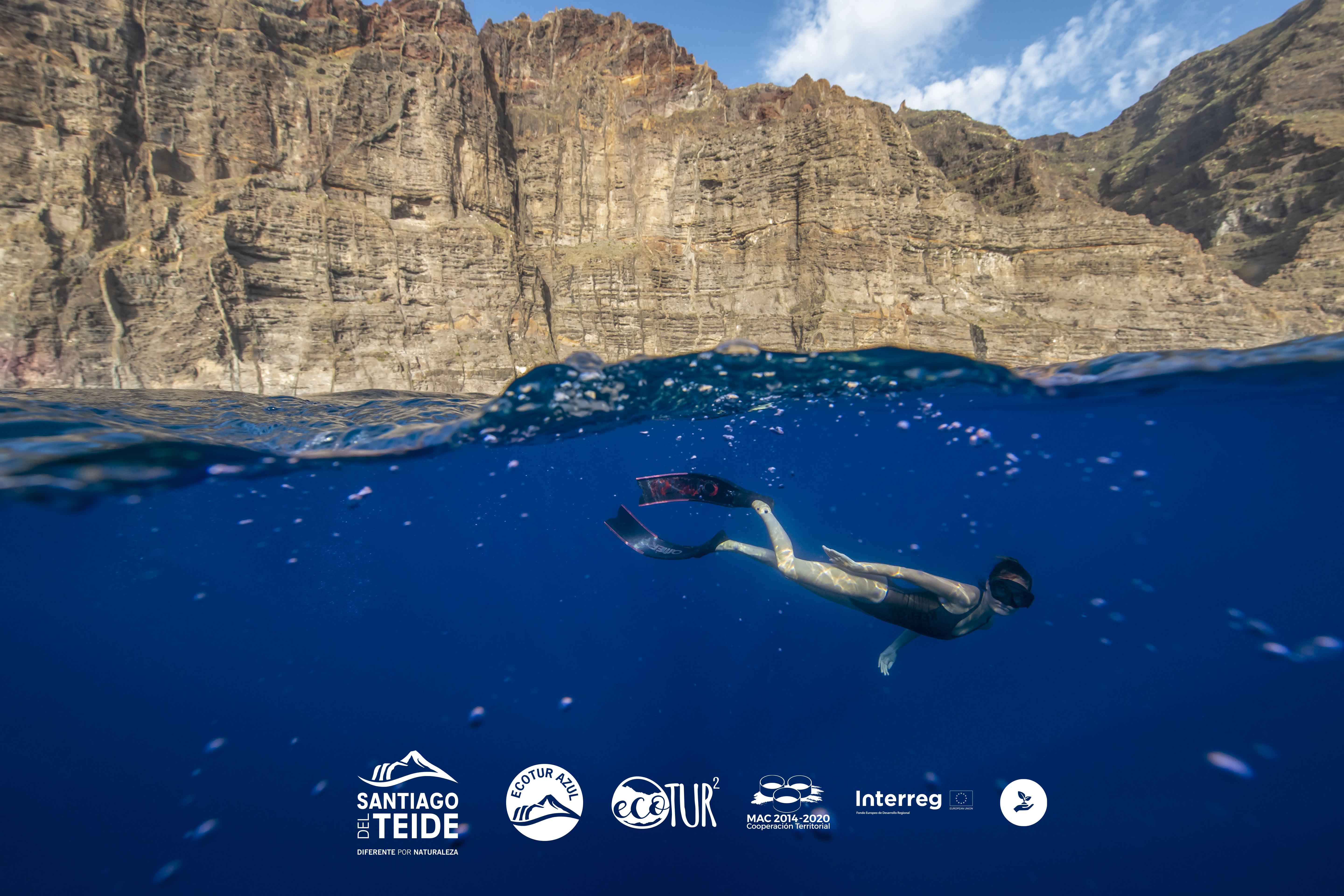Santiago del Teide: Pioneering Sustainable Tourism and Inclusivity
The municipality of Santiago del Teide, located in the southwest of the Island of Tenerife, has become an example of a destination's commitment to promoting sustainable tourism, environmental conservation and inclusion, with the development and promotion of these new tourism products, Blue Ecotur and Volcanological Tourism.
Ecotur Azul, encompasses all the activities that can be carried out in its privileged marine environment, at the foot of the impressive Los Gigantes Cliffs, declared the First Cetacean Sanctuary in Europe, which extends along the coast of Santiago del Teide, and which invites you to enjoy these unique experiences in nature. Enjoy an outing to watch cetaceans with boats adhering to the Sustainability Charter, practice kayaking or paddle surfing, explore the seabed on a day of diving or snorkeling, relax on a maritime excursion in this unique environment, or get to know the marine environment Through the "FarFalle Project", unique in the Canary Islands and based in Santiago del Teide that brings oceanographic research closer to the population, Ecotur Azul positions itself as a unique product in Spain.
In this municipality, the oldest and youngest lavas on the island of Tenerife converge, which have formed two protected natural spaces with unique geological and volcanic wealth. The new tourist product "Vulcanological Tourism" invites us to discover, through its careful network of trails, the great concentration of volcanoes that we can find, among which two of the historical eruptions of the Island of Tenerife, Arenas Negras (1706) stand out. and El Chinyero (1909), offering the opportunity to discover a landscape in which the black color of the malpaís contrasts with the green pine forest or the pink and white tones, if you are lucky enough to do these routes at the time of flowering of the Almond Trees.
If to all this we add that most of the activities offered by both products are adapted to people with different types of disabilities, making a clear commitment to inclusion in the destination, it only remains to say that Santiago del Teide is working under the clear objective of environmental, social, and economic sustainability, which positions it as an example of tourism competitiveness.





